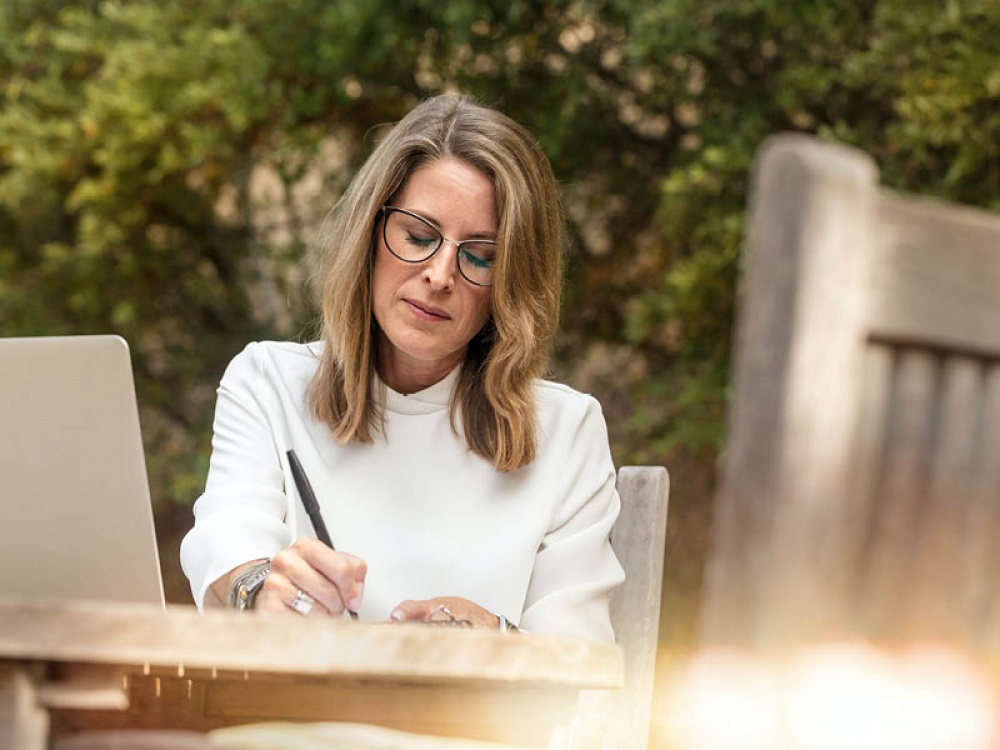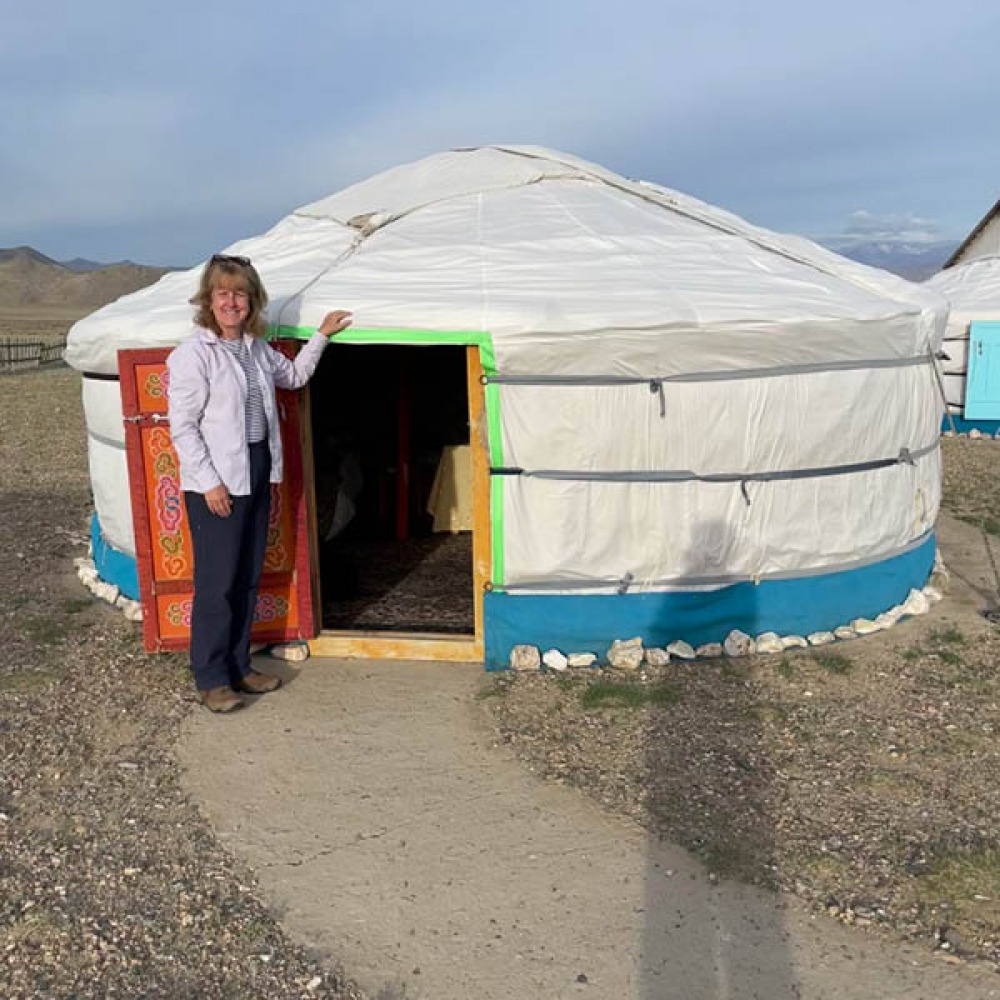North East Doctor Shares Advice on How to Manage Your Expectations of the Menopause

The North East’s menopause guru Dr Diana Mansour offers her advice on dealing with this difficult stage of life, and just how to manage our expectations of the menopause

I therefore felt somewhat privileged to get the chance to chat to Diana, not least as I myself am a midlife woman ‘enjoying’ the many symptoms of perimenopause. A woman, who could definitely do with some counsel, with so many unanswered questions: Should I go on HRT? What exercise and diet plan should I follow? Should I be rattling with a range of herbal supplements? Will all this pass or will I be a hot, sweaty, brain-fogged woman of a certain rage forever? I truly felt extremely lucky to be able to get a one-to-one with a real expert.
I was, therefore, somewhat surprised to learn, whilst researching Diana ahead of our chat, that being an expert in menopause and HRT is simply one string of Diana’s bow. Much as the goddess Diana was known not only as a protector of the wild but also of women, childbirth and the moon, Dr Diana Mansour’s areas of expertise include acceptability of contraceptive methods, non-contraceptive benefits of contraception, development of long-term methods of contraception, medical management of heavy menstrual bleeding and management of the menopause.
You may think I am somewhat over-egging the pudding here comparing Diana to a goddess. However, if you have ever stumbled around clueless for a couple of years, feeling not quite yourself, with inexplicable aches and pains, an unshakeable feeling of impending doom, a sudden inability to get to sleep and stay asleep – only to be told it’s all in your head and maybe some anti-depressants will sort you out – then this lady really is a goddess. This woman knows her stuff. This woman cares. She cares about supporting and informing women. Not about making a name for herself, not about making a profit from our collective misery. She cares about making a difference. If I wasn’t already a torch-bearing worshipper before we started chatting, I was most certainly one by the end!
Read More: Why This Northumberland Entrepreneur is on a Mission to Help Menopausal Women Beat Night Sweats
But back to the strings in Diana’s bow. ‘Yes, I’ve had quite an interesting career,’ she says. ‘I qualified 40 years ago, and wanted to be a GP, but as it came closer to making a decision I thought “I’m not sure if I’m ready for this, I don’t feel grown up enough!” So, I decided to specialise in Obstetrics and Gynaecology.’ At this point, Diana moved to London to complete her training and during this time became involved in research into why women go into labour. ‘It was all round hormones,’ she explains, ‘and this is where my interest in hormones starts to creep in.’
The other strings to her bow came about as a result of needing to fund living in London. She started to pick up extra work in contraceptive clinics in the evenings in some of the most deprived areas of London. She also worked for Marie Stopes, around abortion. It was at this point that a job came up that Diana describes as being ‘for people at the end of their training to specialise in what was then referred to as “community gynaecology”, which we would now call sexual and reproductive healthcare.’
Read More: Meet 11 Inspiring and Talented Women
After just two years in this role, Diana and her husband moved up North and whilst looking for a permanent position, she did some shifts as a locum at the RVI. Ultimately, Diana feels she was very lucky that the Newcastle Hospitals Trust at that time, which was 1997, was looking for someone to lead their contraceptive service and bring in more medical gynaecology to the service. ‘Really, I was very fortunate because in terms of a job plan, I could put together exactly what I wanted to do,’ recalls Diana. ‘So, I did abortion care. I had a weekly theatre list, which was mostly minor surgery, but I could also set up some clinics looking at more complex hormonal issues such as severe premenstrual syndrome, heavy menstrual bleeding and of course menopause work. And from initially having no patients, as no one knew about me, within six months we were really busy.’

‘The real problem is that perimenopausal symptoms often overlap with other medical problems’
A lot of issues relating to menopause are traditionally handled by the primary care team, including local GPs and practice nurses. ‘I have to say the many GPs locally have been incredibly good supporting women through this phase in their lives, but they can’t be experts in every field of medicine,’ says Diana. ‘Referrals to our clinics have escalated with waiting lists now running at five to six months, but we are trying to alleviate this problem by offering GPs advice and guidance online, where they send us questions electronically and then manage patients in primary care.’
Diana feels this is the most sensible way to approach helping women avoid having such a long wait to have their questions answered. ‘Unless someone needs to be examined, or there are very specific in-depth questions that can’t be answered with three or four lines, we are now rejecting referrals where we think “oh this can go through advice and guidance” but then, of course, we’ve got to try to find the time to actually answer them,’ she says.
Diana, and her colleague Dr Kathryn Clement, currently receive 12 to 15 of these queries a day. This has led them to update the menopause guidance available to local GPs, making it much easier to read and bringing it up to date in terms of the range of symptoms and available medication. They are also looking to provide more training for doctors. ‘I think people forget that doctors have to handle people from cradle to grave. I’m amazed at the skills and knowledge of primary care doctors and their ability to keep up to date.’
Read More: Yorkshire Entrepreneur on the Symptoms and Impact of Menopause and How She is Helping Women
This particularly is music to my ears, as I spent a two-year period repeatedly popping into my GP surgery with unexplained mood swings, aches and pains, rosacea acne, brain fog and a fair few other symptoms – all of which I now know were symptoms of perimenopause, but were not recognised by my doctor. When I share this with Diana, she is quick to caution that the real problem is that perimenopausal symptoms often overlap with other medical problems. ‘It overlaps with long Covid for instance, it overlaps with fibromyalgia and chronic fatigue syndrome, it overlaps with mental health. It is difficult to unravel what may or may not respond to HRT, especially if you are perimenopausal and still having periods,’ she explains.
Yet Diana feels the best approach is simple. ‘When we get these questions through advice and guidance, when GPs are unsure what to do, I say, “well, give them three months of low dose HRT. If they respond, brilliant, you know you’re on the right track”. You’re not going to do any harm by giving women a standard, recognised, low dose tablet or patch rather than reach for the anti-depressants.’

As those of you who have read my column, Women of a Certain Rage, will know, I am currently navigating a natural path through perimenopause but would certainly never say never to HRT. My next question to Diana, therefore, was of particular interest to me personally. What I wanted to know was whether she would always advise HRT. ‘No, I do believe in shared decision making. It’s about choice. Some people just want to hear that actually certain lifestyle changes will be of benefit. It may not get rid of all their symptoms, but it is often a time in midlife where we do need to take stock of our diet, start to regularly exercise and normalise our body mass index,’ she says. ‘We know that weight bearing exercise is good for bones, taking Vitamin D in autumn and winter is important. HRT can help for some but may not be for everyone.’
Read More: Ways to Improve Your Sleep During Perimenopause
She explains that she is open to alternative therapies, having experienced first-hand the benefits of acupuncture and adds, ‘St John’s Wort can really help mood change, although it can interact with some medications. I have seen some people who have seen a difference in their hot flushes from taking Red Clover. Some feel magnesium has helped with brain fog, but there is no real scientific evidence to support this.’
In terms of those who choose to take HRT, Diana feels the key is to get the balance right and to start low and slowly build up the dose. ‘I think in days gone by, we used to start women on higher doses of HRT. If you’ve been without hormones for a time you are going to struggle with oestrogen side effects such as breast tenderness, leg cramps and perhaps headaches. If you start low, we suggest GPs see patients after six weeks to see how you are feeling, because it takes between six and eight weeks for you to get your peak benefit from HRT. At that point you can see if you need to have an increase in the HRT dose.’
Read More: How to be Calm, Content And Confident During Perimenopause
Diana and I chatted for a long time and at times I found myself, rather than asking questions, accidentally slipping into a rant – sharing my frustration that we seem to have gone from ignoring menopause to realising it is big business. At one point I told her about my anger and disappointment at seeing an advert for a miracle pill that allegedly gets rid of menopause midriff weight. She let me rant away and then shared this gem with me: ‘What happens when we become menopausal is we become more insulin resistant. We don’t become diabetics, but we produce more insulin to control our blood sugar. So that’s why carbs, particularly refined carbs, are not great for the menopausal woman, we will put on weight with them, and they worsen our menopausal symptoms. Of course, the way insulin controls your blood sugar is by putting it down as fat, particularly around your middle. That’s why we go from our pear shape to our apple shape as we age, which leads to more cardiovascular risk as that fat is not just on the outside but also on the inside of your tummy. So, the key thing is to have a Mediterranean diet, but without the pasta and the pizza. So, it’s oily fish, fruit, veg and just a little bit of dairy.’
I could have talked to Dr Diana Mansour all day but reluctantly had to let her go back to the many other people who need her. My last question was whether there was anything else she wanted to make sure we included in the article.
Read More: The Todmorden Boxing Academy Tackling Women’s Mental and Physical Health
‘Yes,’ she says. ‘I think the key is, despite everything in the media and on social media, having a realistic picture about what can be achieved with HRT. The BBC did a great week on menopause about three years ago which took a balanced view. They looked at diet, physical exercise, “menopause cafés”, encouraging brain exercises… it’s not all HRT and testosterone. Some women don’t get very severe menopause symptoms but are made to feel they should be taking HRT. Others are just frightened as they have heard such horror stories. About 80 percent of women will experience menopausal symptoms, and these tend to last for about seven years. However, a small proportion of women may continue having problems for 10 to 15 years.
‘I recommend women look at the NHS website; it has great guidance, as does the Menopause Matters website, The British Menopause Society website, and the National Society of Osteoporosis information is very good too,’ she adds.







